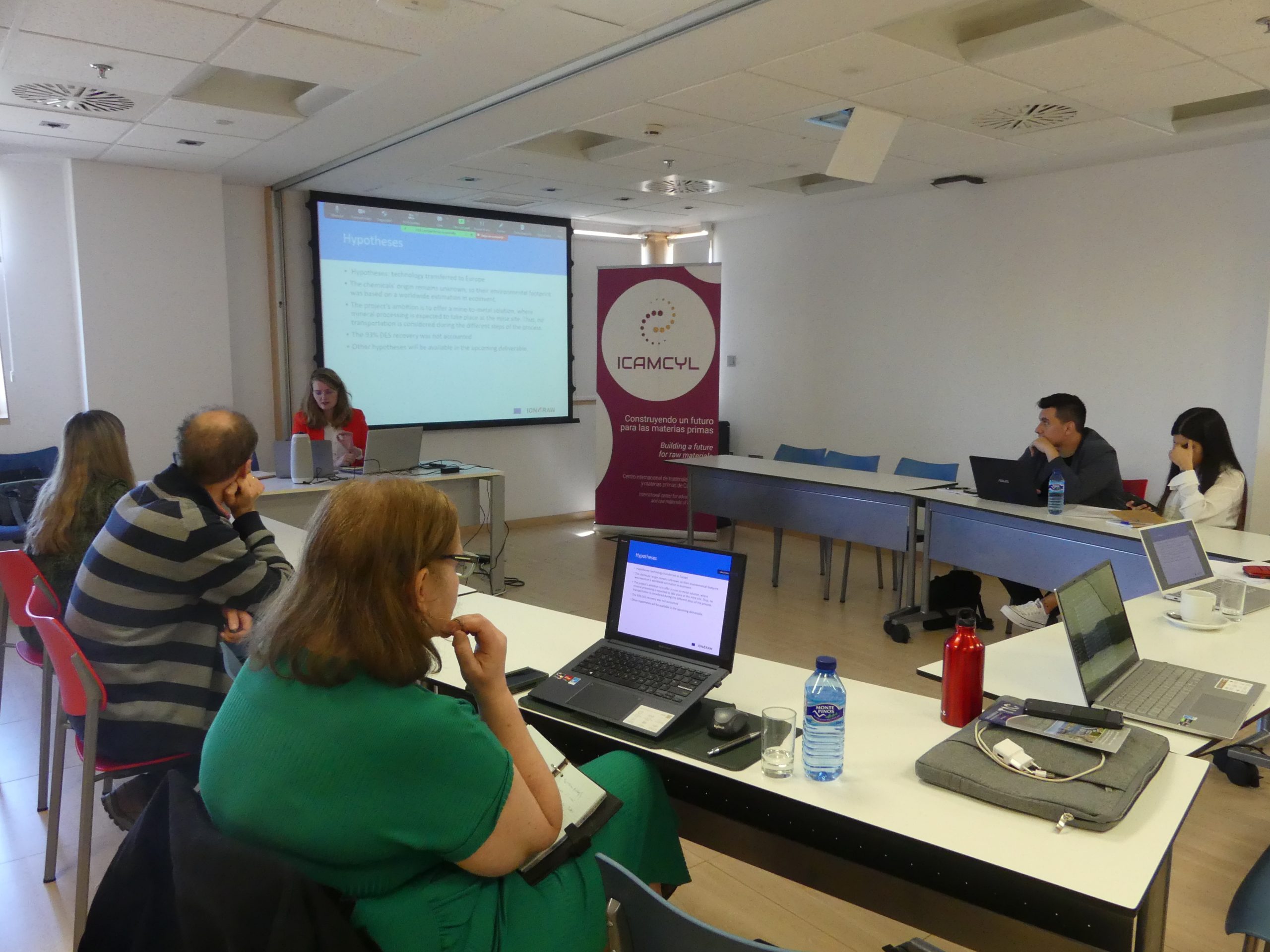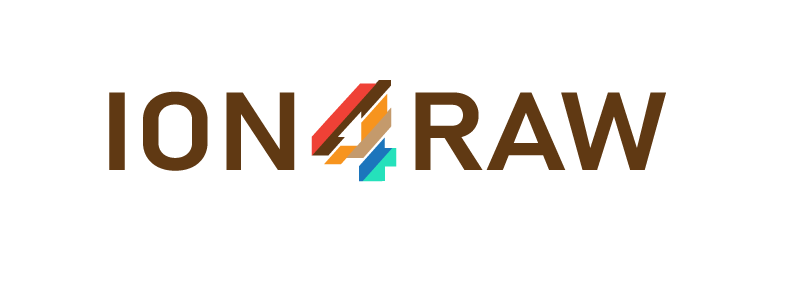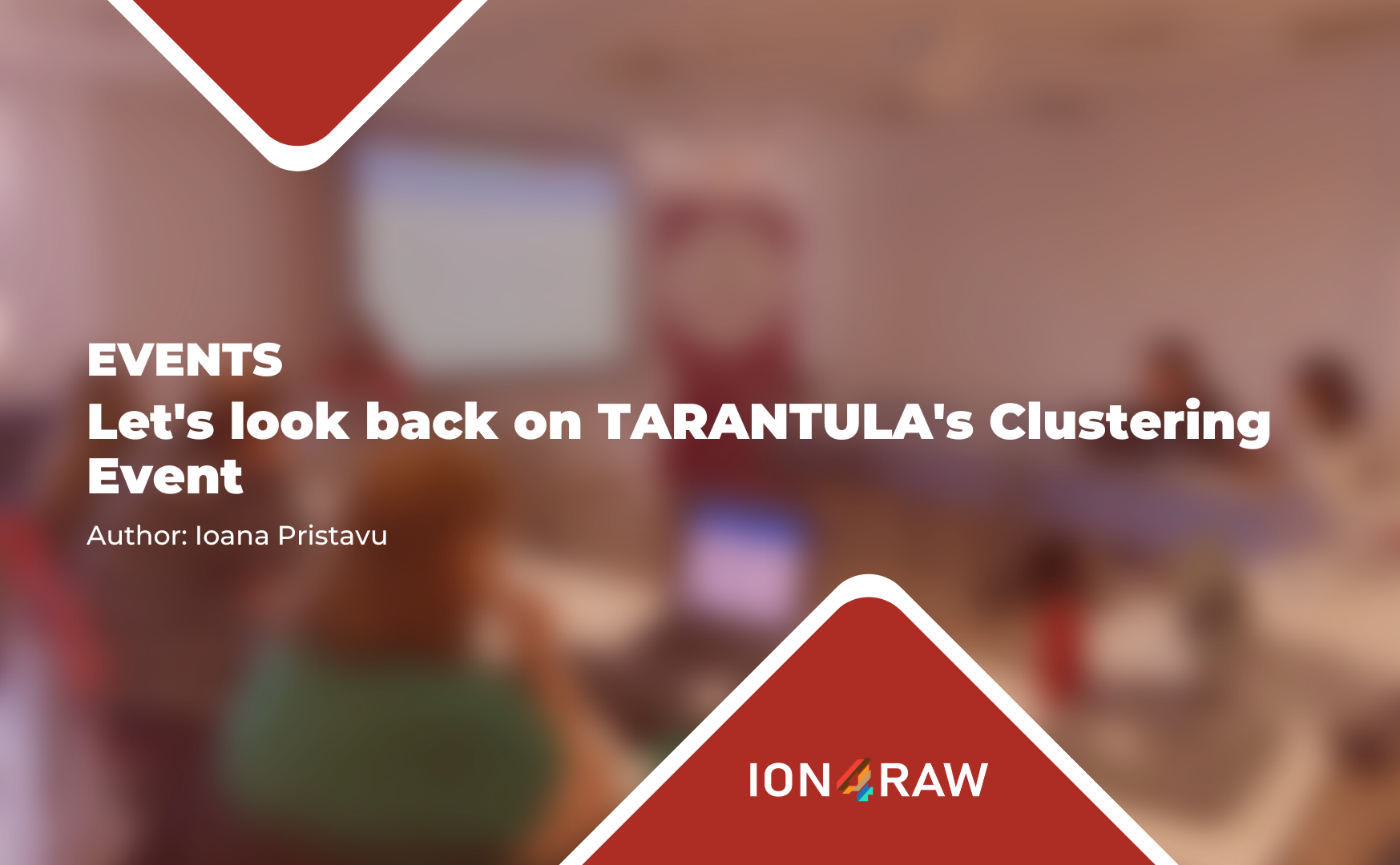The mining sector is unquestionably crucial for Europe’s economic growth and the development of various industries, including green and digital technologies. However, as emphasised at the end of the event by Prof. Juan Maria Menendez Aguado from University de Oviedo Mining and Minerals Engineering, mining activities are often associated with environmental and social challenges, leading to conflicts with local communities, and potentially jeopardising the Social License to Operate (SLO). Despite Europe’s high environmental standards for raw material production, the harvesting of primary and secondary resources of critical raw materials (CRMs) is imminent and requires regaining the trust of European citizens and policymakers.
Insights and Highlights from the Panel Discussions and Roundtables
On 19 April, the International Centre for Advanced Materials and Raw Materials (ICAMCyl) organised a cluster event on behalf of the TARANTULA EU-funded project which is expected to reach its final stages in November 2023. The workshop brought together mining projects and companies, and included two panel discussions and a round table that highlighted various aspects of SLO methodologies and Life Cycle Assessment (LCA) in the mining sector. The event took a holistic approach to modern mining processes, providing insights on more than just technical aspects relevant to SLO and LCA. Discussions emphasised the importance of implementing sustainable and responsible mining practices that balance economic, social, and environmental concerns. Additionally, there was emphasis on the importance of engaging with local communities and governments to build trust and support for mining activities.
ION4RAW, represented by Mathilde Legay (LGI), participated in the roundtable discussing how EU-funded projects are tackling the SLO aspect during the development phase, but also in the panel discussion focusing on the LCA methodology and the impact categories, such as climate change, metal depletion, freshwater ecotoxicity and eutrophication, and human toxicity.
The Technological Park of Leon (ESP) hosted the event, which provided an opportune context to share the results of a study conducted within one of ION4RAW’s sister-project’s – BIORECOVER. The study carried out by ENSO and LGI revealed the social perception of the mining sector in Spain, France and Greece and the need to educate people about the importance of mining activities. Despite certain concerns, around 50% of the interviewed participants were in favour of opening more mines in Spain to reduce the global environmental impacts, improve working conditions for miners, and create more job opportunities for various regions. The study was complemented by a detailed presentation of the public awareness campaign run by ION4RAW, which aims to communicate about the use of raw materials in daily life and showcase the essential usage of CRMs in key sectors. LGI initiated an awareness campaign, including impactful attractive visuals, animated videos, social media cards, followed by quizzes and online contests, which was well-received by the European Commission’s reviewers, but also by the project’s online communities.
During the latter part of the event, ION4RAW presented the initial findings and hypotheses derived from applying the LCA methodology in the project. The focus was on assessing the environmental impact of using Deep Eutectic Solvents (DES) in ION4RAW, with preliminary results indicating that the synthesis of DES and the concentration of additives are associated with the climate change and freshwater ecotoxicity impacts.
The EU projects TARANTULA, ION4RAW, MADITRACE, S34I and PASSENGER presented their findings, which were complemented by two presentations from leading mining companies in Europe – operating the Penouta Sn, Ta and Nb mine (ESP), respectively the Barruecopardo Mine (ESP). The companies presented key aspects that contribute to a positive SLO, emphasizing the importance of restoring the environment, improving the economic situation of the mining area and the surrounding areas, creating employment opportunities, and providing training to local communities.
The Workshop in Figures
The cluster event organised by the TARANTULA project attracted a diverse range of stakeholders, including research institutions (62%), mining and manufacturing companies (23.81%), consultancy firms (9.52%), and trade unions (4.76%). The event had an audience of nearly 25 participants from different countries, with most attendees being from Spain, followed by Belgium, France, Italy, Germany, and Austria.
In conclusion, the TARANTULA clustering event was a valuable platform for sharing insights and experiences, and it highlighted the essential role of the mining sector in the development of various industries. It is crucial to ensure that mining activities are carried out sustainably and with the support of local communities and the public.



